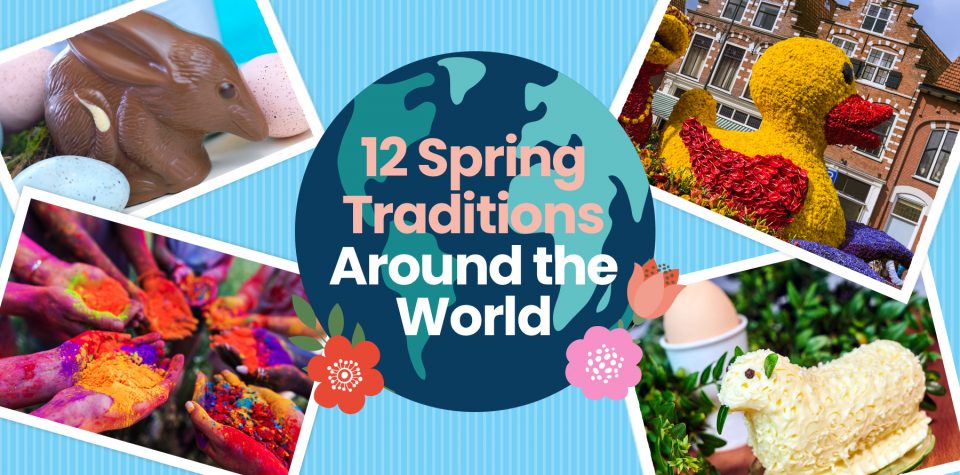
12 Spring Traditions Around the World
Spring is a time of rebirth, renewal, and warm-weather activities. Baby animals are born, flowers bloom, and families around the world welcome spring with their own traditions. Through food, festivals, and various activities, the spring celebrations are endless. Here’s a list of how 12 different countries welcome spring, whether people celebrate Easter or observe the spring equinox.

Edible Spring Traditions
Butter Lambs (Russia, Slovenia, Poland)
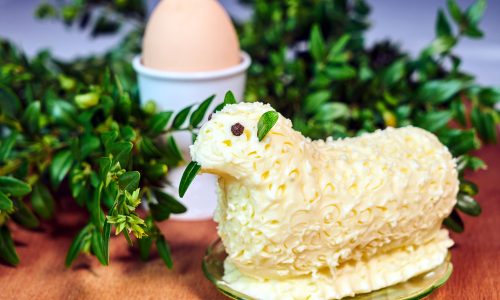
Butter lambs decorate Easter tables throughout Central and Eastern Europe, particularly in countries such as Russia, Slovenia, and Poland. Butter lambs are exactly what they sound like: mounds of butter that have been carved or molded to look like a lamb. Although many stores now sell butter lambs, hand making these classic centerpieces at home is a beloved tradition for many families. When using the butter lamb, the proper etiquette is to start at the back and leave the head for last. Butter up!
Chocolate Bilby (Australia)
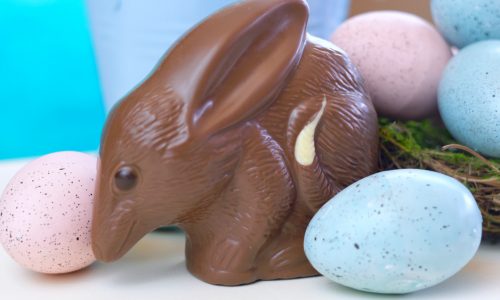
Bilbies are rabbit-sized marsupials with large ears and thin, pointy noses. These burrowing creatures are native to Australia and once inhabited 70% of the continent, but their population began to decline after rabbits were introduced to the ecosystem in 1859. In 1991, a campaign launched to replace the Easter Bunny with the Easter Bilby to raise awareness for bilby conservation efforts. Soon after the Easter Bilby was adopted, chocolate bilbies began taking over candy stores. Today, chocolate bilbies are popular across Australia, and the Easter Bilby campaign has been monumental in raising awareness for bilby conservation projects.
Cimburijada (Bosnia)
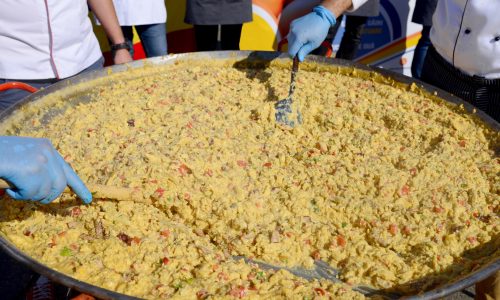
Cimburijada, or the Festival of Scrambled Eggs, welcomes spring with a feast. During Cimburijada, Bosnians crack thousands of eggs to make enough scrambled eggs to feed the entire neighborhood! The cooking begins at dawn on the first day of spring. Crowds gather in Zenica near the Bosna River, the streets lined with giant pots and pans. To the Bosnian community, the eggs are both delicious and symbolize the birth of new life.
Nowruz (Iran)
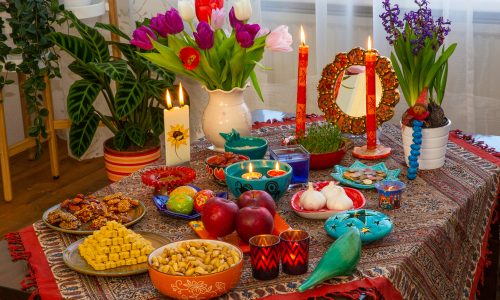
Nowruz, meaning “new day” in Persian, is an Iranian spring tradition that celebrates the rebirth of nature. The haftseen is a ceremonial table prepared during Nowruz that contains seven items representing spring. The seven items may include the seeb (apple), seer (garlic), serkeh (vinegar), senjed (dried fruit), samanu (sweet pudding), sabzeh (sprouts), and sumac (red Persian spice). Once the seven elements are in place, families can add extra items such as coins, colored eggs, and even goldfish! The haftseen table remains in place until the Nowruz celebration is over.

Spring Festivals
Holi (India)
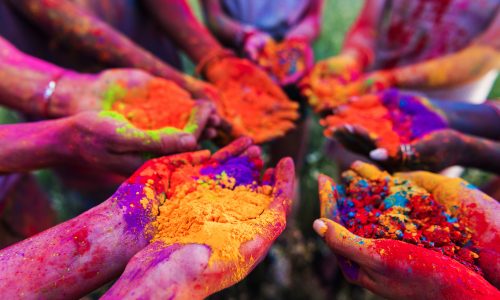
Holi, also called the Festival of Colors, is an ancient Indian tradition that celebrates the end of winter and the beginning of spring. During this lively outdoor festival, people light bonfires, throw colored powder called gulal, sing and dance, and eat delicious sweets and treats. By the end of the festival, everyone has a full belly and is covered from head to toe with bright colors!
Songkran (Thailand)

The Songkran festival marks the beginning of the Thai New Year. It takes place in April, Thailand’s hottest month. Water is an important symbol during Songkran because it represents washing away the old year and anticipates rainfall for the coming season. During the multi-day festival, people flock to the streets to throw water at each other. From water balloons to buckets, there are endless ways to soak friends and family!
Spring Equinox at the Teotihuacan Pyramid (Mexico)
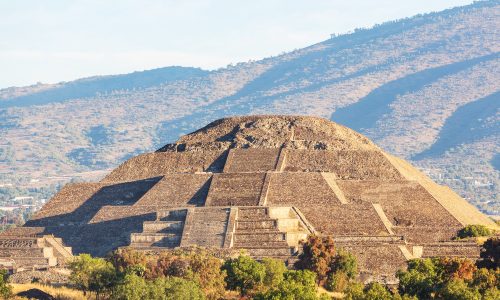
The spring equinox occurs when the Sun shines directly above the Earth’s equator, causing day and night to be equal lengths of time. In Mexico, one of the most popular places to celebrate the spring equinox is at the Teotihuacan Pyramid, or the Pyramid of the Sun. Every year, people dressed in all white climb to the top of the pyramid. The color white is believed to absorb the good energy that the equinox and spring will both bring.
Flower Parade of the Bollenstreek (Holland)
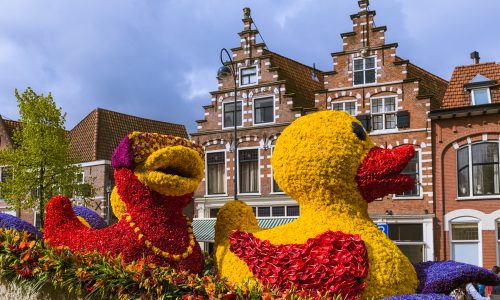
Holland is famous for its abundance of tulip-covered fields. One of Holland’s biggest and most anticipated spring events is the Flower Parade of the Bollenstreek. Dozens of floats made of tulips, hyacinths, daffodils, and more parade through several villages from Noordwijk to Haarlem. Millions of flowers are used to make these beautiful floats, which can take the shape of anything from ducks to chairs! The floats make their final stop in Haarlem, where onlookers can view the floats up close.
Sham el Nessim (Egypt)
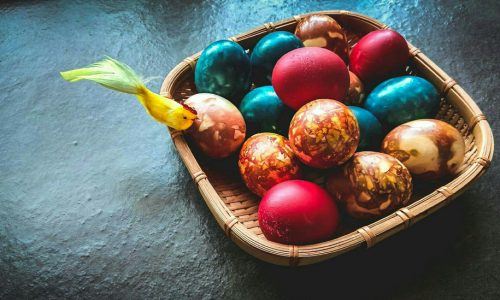
Egyptians celebrate the Sham el Nessim spring festival the Monday after Easter. The festival’s name translates to “smelling the breeze,” acknowledging the coming harvest and the change in the spring air. Families celebrate Sham el Nessim by decorating and writing wishes on hard boiled eggs. The eggs symbolize rebirth, and many families hang baskets of eggs outside their homes, hoping that their wishes get fulfilled.
Spring Games and Activities
Martenitsa Bracelets (Bulgaria)
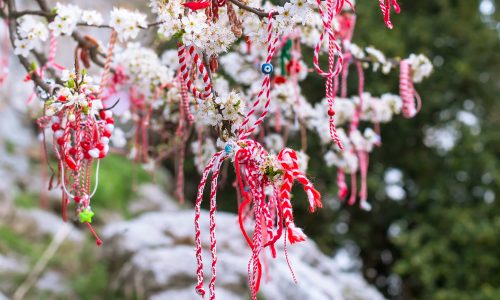
Bulgarians celebrate the arrival of spring with red-and-white bracelets called martenitsa. The martenitsa threads bond Bulgarian communities and represent the strength, health, and happiness of the country. As winter fades away, friends and family exchange martenitsa and wear them in anticipation of spring. When someone sees a sign of spring, such as a first bloom, stork, or swallow, they take off their martenitsa and tie it to a nearby tree. Once spring is in full effect, trees everywhere are decorated with beautiful martenitsa!
Egg Standing Game (China)
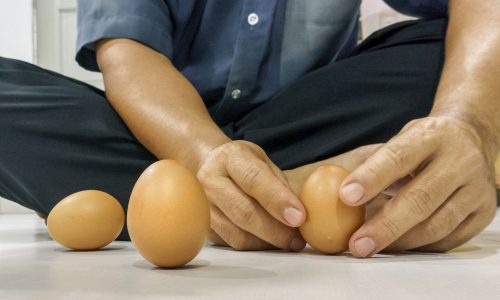
The Li Chun festival celebrates the Spring Equinox and marks the beginning of spring in many East Asian cultures. During the Li Chun festival, people decorate eggs and play the “egg standing game.” Many believe that because the Sun is directly above the equator during the spring equinox, the eggs are more likely to stay balanced. Tradition says that if you are successful at balancing your egg, you will have health and good luck for the rest of the year!
Pot Throwing (Greece)
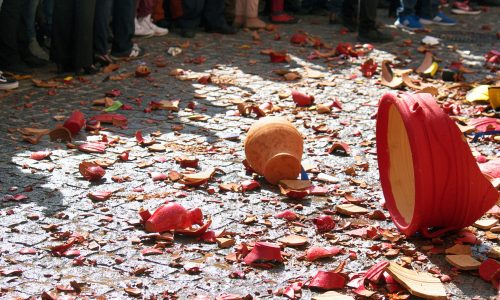
On Easter Saturday, the Greek island of Corfu celebrates with a smash! Corfu islanders celebrate by throwing clay pots full of water out their windows, resulting in a thunderous melody of shattering pots. The custom is believed to ward off bad spirits, and residents often take home shards of the pots as good luck charms. Every year, hundreds of people gather to watch the smashing pots, keeping alive this beloved tradition.
If your child enjoyed learning about springtime traditions from around the world, check out our World Edition subscription. Every month, your child will discover a different country through traditions, foods, language, and more! Shop here.

